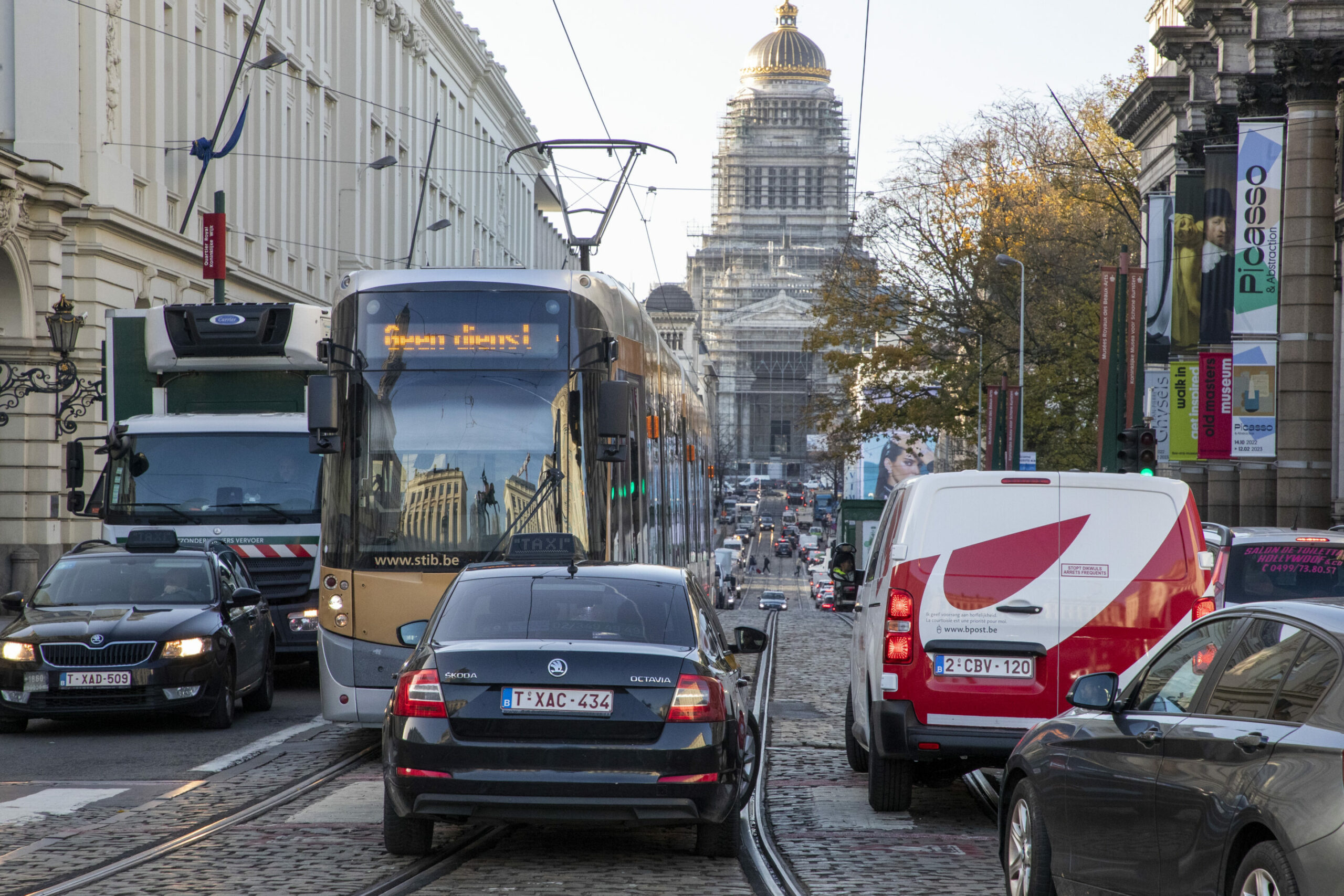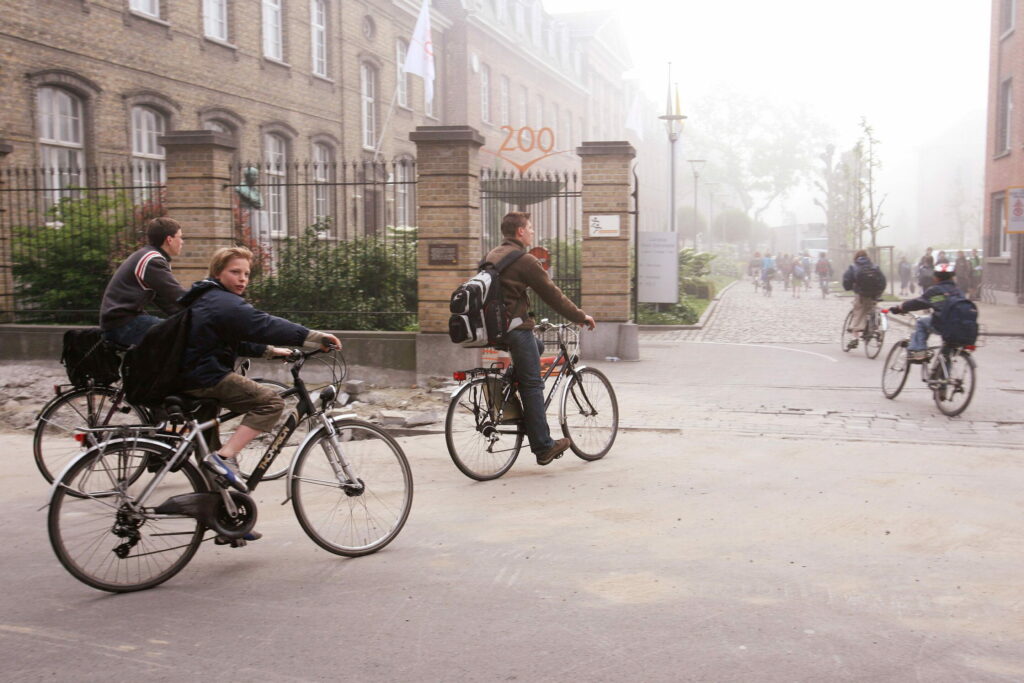One in five Brussels primary schools are exposed to levels of nitrogen dioxide (N02) at least double (and sometimes triple) WHO-recommended cut-off points.
Researchers at UCLouvain surveyed 622 primary schools in the Brussels-Capital Region and found that 122 of them (19.45%) were exposed to at least double the levels of NO2 recommended by the World Health Organisation (WHO).
In addition, every single one of the Brussels Region's 855 primary schools exceeds the WHO limit, which the organisation "associates with significant risks to public health".
N02 emissions are particularly dangerous for young children, whose metabolism is still developing. Their small size and quicker respiration rate result in them inhaling more emissions than adults do.
"It is unacceptable that children in all schools, including many nursery schools, are damaging their health when breathing," said campaigns coordinator at Les Chercheurs de l'Air Renaud Leemans, linking emissions to traffic, which accounts for almost half of N02 in the air.
'Health emergency'
The findings coincide with a "bombshell" announcement in Brussels Government formation talks.
In a shock move, Francophone parties (liberals MR, centrists Les Engagés and the Socialist Party) announced during the negotiations that they are now in favour of delaying legislation on Low Emissions Zones (LEZ), going back on a policy that was agreed on back in 2017.
Under the city centre's LEZ, diesel Euro 5 standard engines will be banned from 1 January 2025, with all diesel engines phased out by 2030 and all thermic engines out by 2035. Following the announcement, this first step may now be delayed until 2027.

Rue de la Régence. Credit: Belga / Nicolas Maeterlinck
Chercheurs de l'Air says the delay will only prolong the harm N02 inflicts on children's health. "Maintaining the current LEZ timetable would allow us to respond quickly and sustainably to this health emergency," commented Leemans.
'Pollution coalition'
The Francophone U-turn has displeased negotiators on the Dutch-speaking side, notably formator Elke Van den Brandt (Groen). The decision is a "deep breach of trust", she said on Monday, expressing disappointment that her party was not consulted before the announcement.
LEZs have reduced emissions by 40% since 2018 and the latest political manoeuvre has prompted a renewed defence of the policy.
"Mouvement Réformateur-Les Engagés-Parti Socialiste: pollution coalition," Alain Maron (Ecolo) posted on X (formerly Twitter) in reaction to the proposed delay.
The Francophone parties in question say they are still in favour of the policy but think drivers need more time to adapt to the ban.
"This is not a step backwards, but a necessary adaptation to ensure that everyone can keep up," Christophe De Beukelaer (Les Engagés) told Trends/Tendances.
"We all want to reduce pollution, but we have to listen to people who tell us, 'We understand, but give us a little time to change our vehicle'," City of Brussels Mayor Philippe Close (PS) told BX1.
Flanders and Wallonia have already postponed the ban on Euro 5 standard engines until 2028 and 2026 respectively.

